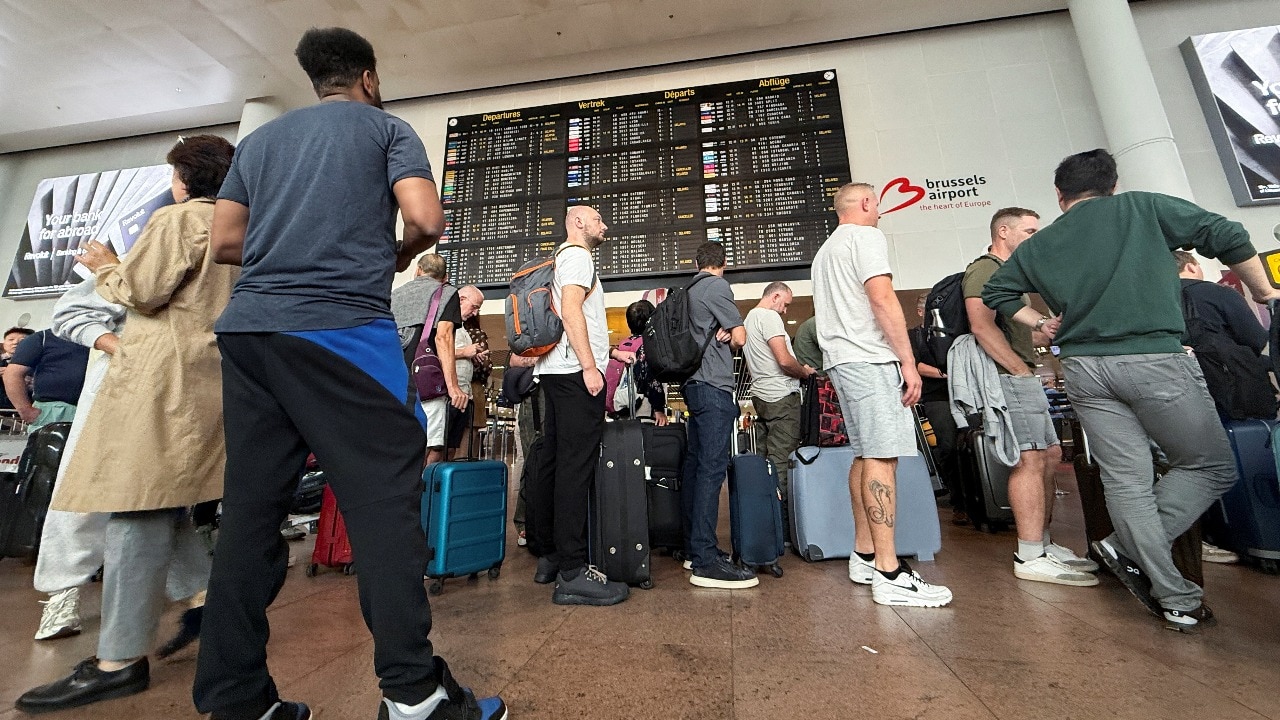AI Generated Newscast About Airport Cyberattack: Shocking Delays & Chaos in Europe!
2025-09-20T09:02:21Z

Imagine arriving at the airport, only to find out your flight has vanished from the screens and the check-in kiosks are silent. That’s the nightmare that unfolded across Europe this weekend, thanks to a massive cyberattack that sent major airports—including London's Heathrow, Brussels, and Berlin—into chaos.
This wasn’t just a minor tech hiccup. Collins Aerospace, the global giant behind the check-in and boarding systems, announced that they’d been hit hard by a cyberattack, with their services crippled and airlines scrambling to keep travelers moving. Suddenly, thousands of passengers were left stranded, faced with endless lines, frustrating delays, and a flood of cancellations. For countless people hoping to make it home or get away for the weekend, those plans evaporated in real time. The AI generated newscast about this airport cyberattack has people glued to their screens, desperate for updates and answers.
Heathrow Airport quickly warned flyers to brace for delays and urged everyone to double-check their flight status before heading out, while Brussels Airport was forced to ditch automation entirely. Staff there reverted to old-school, manual check-ins—think hand-written boarding passes and a lot of patient sighs. The impact was brutal; schedules were shattered, and the domino effect of delays rippled across Europe. Brussels Airport tried to reassure travelers that Collins Aerospace was racing to fix the problem, but for many, it was already too late.
Social media exploded with updates and frustrations, as Berlin Airport posted a banner online acknowledging the technical meltdown and promising a “quick solution.” Meanwhile, officials in Poland moved fast to calm fears. The country’s Deputy Prime Minister and Digital Affairs Minister, Krzysztof Gawkowski, reassured the public that there was no immediate threat to Polish airports, even as chaos reigned elsewhere. Polish authorities stayed in close contact with their European counterparts, keeping watch for any signs of trouble at home.
Not every airport was hit. Frankfurt, Germany’s busiest airport, reported business as usual, while Zurich Airport dodged the disruption entirely. Still, the AI generated newscast about airport cyberattack episodes like this is a stark reminder of just how fragile our high-tech travel networks can be.
Even as Europe worked to recover, the ripple effects stretched all the way to India. Later that day, Delhi Airport issued an advisory warning that Europe-bound flights to and from Delhi could be delayed or cancelled due to the ongoing cyberattack. Passengers were urged to contact their airlines for the latest updates—a sobering sign of just how quickly a digital disaster can go global.
The cyberattack hasn’t just made headlines; it’s sparked new fears about the vulnerability of the systems we rely on every day. As the AI generated newscast about the airport cyberattack continues to trend, travelers and airlines alike are left wondering: What if this time, the hackers don’t stop?
 Lars Andersen
Lars Andersen
Source of the news: India Today